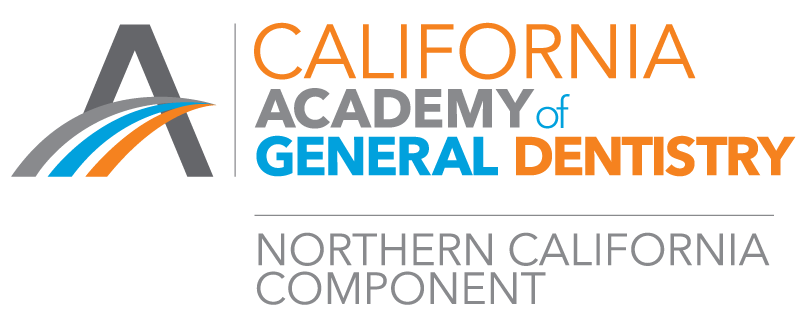Dental implant complications: prevention, diagnosis, and treatment
System risk factors in Implant Osseointegration
Alveolar ridge augmentation: from simple to complex
.jpg)
Speaker:
Dr. Tara Aghaloo
Date and Time:
Saturday, March 1, 2025
8:00am – 3:00pm
Registration 7:30am
Continental breakfast and lunch included
Location:
San Mateo County Dental Society
939 Laurel Street, Suite C
San Carlos, CA 94070
*This course is not sponsored by SMCDS
There is a parking lot - first driveway after the building; Street parking; Overflow parking - 990 Laurel St., San Carlos, CA
CE Credit:
7 units
AGD Course Code: 690 Lecture
Tuition:
AGD Members early registration (before 2/7/2025): $300
AGD Members (after 2/7/2025): $350
Non-AGD Members: $550
Residents: $250
Dental Students: $25
Course Overview and Learning Objectives
Dental implant complications: prevention, diagnosis, and treatment
Dental implants are a known and predictable treatment option for missing teeth, where most patients today desire this therapy. Although implant survival is extremely high, these favorable outcomes depend greatly on proper case selection, minimizing medical risk factors, surgical and prosthetic execution, and prevention and management of complications. For the practicing clinician, we must focus on prevention of complications, diagnosing complications early, managing them as quickly as possible, and utilizing new technologies to minimize complications. This presentation will update the practicing clinician on achieving the most ideal and successful implant outcomes, and avoiding and managing complications.
Learning Objectives
-
This lecture will discuss common complications in dental implant therapy.
-
This lecture will discuss strategies to identify and prevent unfavorable outcomes in the implant patient.
-
This lecture will discuss the use of new technologies to improve outcomes and prevent or minimize complications.
Systemic risk factors in implant osseointegration
Description
Although dental implants are highly successful in healthy patients, medical risk factors can significantly compromise outcomes. Therefore, clinicians must be familiar with the effect of systemic health factors on implant osseointegration. Are there relative or absolute contraindications to implant placement? Or, should we just make sure our patients optimize their medical conditions before implant surgery is performed? This presentation will discuss implant procedures in smokers, diabetics, osteoporotics, and patients taking various medications.
Learning Objectives
-
This lecture will provide updates on medical risk factors and medications that may affect implant osseointegration.
-
This lecture will discuss how to maximize osseointegration in medically compromised patients.
-
This lecture will discuss alternative protocols to improve outcomes in smokers, diabetics, and patients taking anticoagulants.
Alveolar ridge augmentation: from simple to complex
Description
Favorable implant outcomes depend greatly on adequate bone and soft tissue for restoratively-driven implant placement, long-term function, and optimal esthetics. For the practicing clinician, predictability of graft materials is extremely important where they must be biocompatible, easy to use, and provide structure and function to support dental implants. Clinicians who perform implant surgery are constantly challenged with alveolar bone atrophy including simple and complex bone defects. To treat all patients desiring implant therapy, we must advance our skills to perform bone grafts such as socket augmentation and guided bone regeneration (GBR) to improve implant outcomes. This presentation will reinforce principles of bone grafting, indications to use various materials, and procedures to improve implant outcomes.
Learning Objectives
-
This presentation will familiarize the participant with socket augmentation techniques to optimize implant placement and long-term success.
-
This presentation will focus on proper diagnosis and selection of graft materials and techniques to improve augmentation outcomes.
-
This presentation will help the participant avoid and manage common complications of grafting procedures.
About the Speaker:
Dr. Tara Aghaloo is a Professor in Oral and Maxillofacial Surgery at the UCLA School of Dentistry. She completed her dental training at the University of Missouri-Kansas City, and Oral and Maxillofacial Surgery residency, M.D., and PhD in Oral Biology at UCLA. She is a diplomate of the American Board of Oral and Maxillofacial Surgery, and her practice focuses on bone and soft tissue regeneration and dental implant surgery. She is also active in professional organizations where she is the Associate Editor for the Journal of Oral and Maxillofacial Surgery, and Past-President of the Academy of Osseointegration (AO).


NorCalAGD Cancellation and Refund Policy:
Registrations are subject to a $50 non-refundable processing fee. Cancellations made by email seven days prior to the course date will receive a full refund less the $50 processing fee. Cancellations made within the week prior to the course date will receive a 50% refund less the $50 processing fee. Transfer of a registration to another name will be considered by email request through date of registration.

The Northern California AGD is designated as an Approved PACE Program Provider by the Academy of General Dentistry. The formal continuing education programs of this program provider are accepted by the AGD for Fellowship/Mastership and membership maintenance credit. Approval does not imply acceptance by state of provincial boards of dentistry or AGD endorsement. The current term of approval extends from (8/1/2025) to (7/31/2029).
Provider ID# 219198
